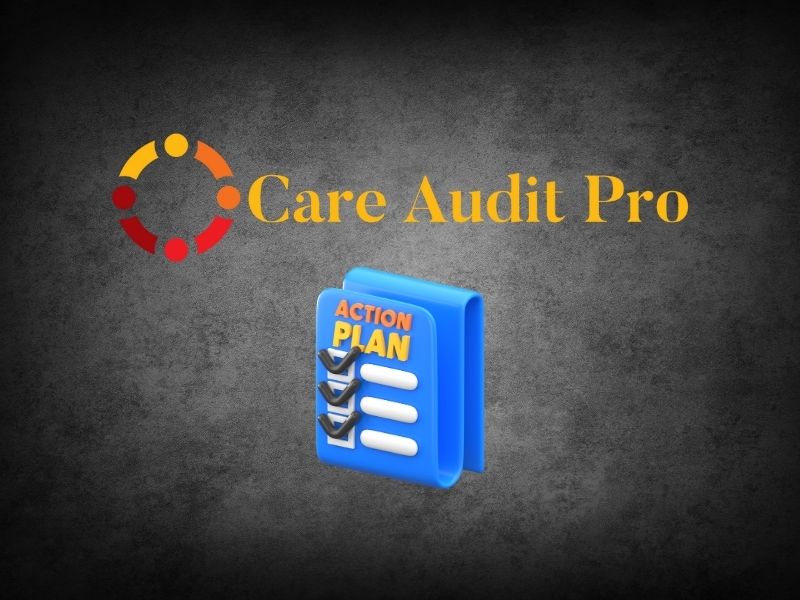
Digital Audits to Action Plans: Closing the Loop
By Attila Szelei on 03/11/2025
Digital Audits to Action Plans: Closing the Loop
AEO Answer: Digital audits are essential tools for registered managers and compliance officers. They streamline the audit process by translating findings into actionable plans, ensuring continuous improvement in care quality and compliance.
Understanding Digital Audits in Social Care
In the ever-evolving landscape of social care, the importance of effective audits cannot be overstated. Digital audits provide a systematic approach to evaluating care quality, compliance, and safety. They enable registered managers and quality leads to gather data swiftly, assess compliance with the CQC’s Single Assessment Framework, and ultimately enhance care governance.
The Importance of Evidence Mapping
One of the key aspects of digital audits is evidence mapping. This process involves collating various pieces of evidence that demonstrate compliance with regulatory requirements, including:
- Care plans
- Risk assessments
- Incident reports
- Medication administration records (MAR)
By mapping this evidence, organisations can readily identify areas of improvement and develop targeted action plans. This not only supports compliance but also prepares providers for inspections, ensuring that all necessary documentation is organised and accessible.
From Findings to Action Plans
Once the digital audit is complete, the next crucial step is converting findings into actionable plans. This involves a detailed review of identified issues and developing strategies to address them. Here's a straightforward process to follow:
Steps to Create Action Plans from Audit Findings
- Review Audit Findings: Gather insights from the digital audit.
- Prioritise Issues: Identify which issues require immediate attention based on impact and risk.
- Set SMART Goals: Ensure each action is Specific, Measurable, Achievable, Relevant, and Time-bound.
- Assign Responsibilities: Designate staff members for each action item.
- Establish Deadlines: Set realistic timelines for completion and review.
- Monitor Progress: Regularly check in on action items to ensure they are on track.
Example: Medication Safety and MAR Accuracy
Consider a scenario where an audit reveals discrepancies in medication administration records. An effective action plan might include:
- Immediate Training Sessions: Conduct training for staff on MAR accuracy.
- Daily Checks: Implement a daily auditing process for MARs to ensure consistency.
- Feedback Loop: Create a system for staff to report issues and receive support in real-time.
By translating audit findings into specific, actionable steps, care providers can significantly enhance medication safety and reduce the risk of errors, thus aligning with the duty of candour principles.
Incident Learning and Duty of Candour
In social care, learning from incidents is vital. Digital audits can also highlight patterns in incidents, enabling organisations to adapt proactively rather than reactively. The duty of candour obligates care providers to be transparent with service users when things go wrong. This includes:
- Documentation: Ensure all incidents are documented accurately during audits.
- Analysis: Identify root causes through digital audit tools.
- Communication: Inform affected individuals and families effectively, fostering trust and accountability.
Tips for Preparing for Inspections
- Regularly Conduct Digital Audits: This keeps your compliance status current and helps identify issues before inspections.
- Maintain Clear Documentation: Ensure all records are easily accessible and well-organised.
- Engage Staff in the Process: Involve staff in audits and action plans to promote buy-in and accountability.
Closing the Loop: Continuous Improvement
The ultimate goal of audits and action plans is to foster a culture of continuous improvement within care settings. By closing the loop between digital audits and actionable plans, organisations can ensure:
- Better service delivery
- Enhanced safety and quality of care
- Increased satisfaction among service users and staff
How Care Audit Pro Supports This
Care Audit Pro’s digital audits and action plans streamline compliance processes. By providing clear frameworks for evidence mapping and incident learning, Care Audit Pro assists registered managers, quality leads, and compliance officers in maintaining SAR readiness. The platform simplifies the transition from audit findings to actionable steps, ensuring that care providers meet regulatory standards and improve care quality continuously.
By leveraging digital audits, you can not only prepare for inspections but also cultivate a culture of transparency and improvement within your organisation.
Keywords: [digital audits, action plans, care governance, compliance, incident learning]